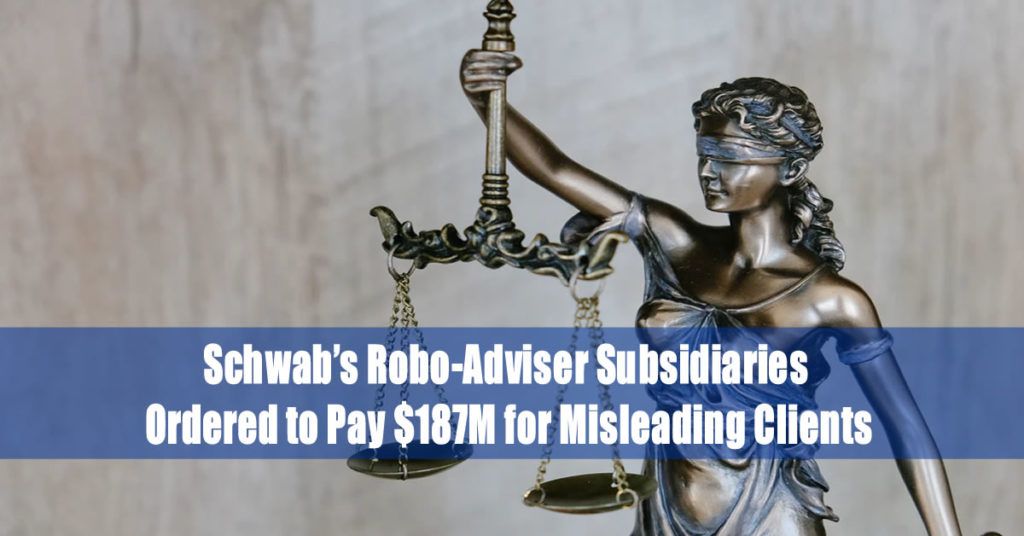Three investment advisers, subsidiaries of Charles Schwab, have been hauled up by the Securities Exchange Commission (SEC). The reason provided is that they made “false and misleading statements” regarding the cash component in Schwab Intelligent Portfolios, its robo-adviser service. In addition, they allocated client funds in a manner that was demonstrated to be less profitable for customers as per their own internal analysis under most market conditions, and they failed to divulge this information.
The robo-adviser portfolios of Schwab retained client assets in the form of cash ranging between 6 and 29.4 percent, as revealed by the SEC, as a pre-set number. This, apparently, was done so that the affiliated bank of Schwab would be able to earn money on the free funds by lending them out. This is significant since the robo-adviser was advertised by Schwab as not having any advisory or hidden fees.
What was not disclosed by the advisers was that this cash allocation was likely to lower returns earned by clients in conditions where equities outperformed cash. The compromise in client earnings would approximately be the same as what levying advisory fees would result in.
What did Schwab Intelligent Portfolios’ disclosures say?
Between March 2015 and November 2018, the mandated disclosures for Schwab’s robo-adviser merely stated that the cash allocation in the portfolios was determined through a “disciplined portfolio construction methodology.” It further said that seeking “optimal return[s]” would be the goal of the robo-adviser.
According to the SEC, the portfolio’s cash component creating a drag on earnings for clients was demonstrated by Schwab’s internal data, even though their risk would not be proportionately reduced.
It has been alleged by the SEC that Schwab unjustly enriched themselves by keeping the difference between the interest they earned on the amount loaned out from the clients’ cash component, and what they paid to clients of the robo-advisers.
According to Gurbir S. Grewal, director of the SEC’s Division of Enforcement, “Schwab claimed that the amount of cash in its robo-adviser portfolios was decided by sophisticated economic algorithms meant to optimize its clients’ returns when in reality it was decided by how much money the company wanted to make. Schwab’s conduct was egregious and [the] action sends a clear message to advisers that they need to be transparent with clients about hidden fees and how such fees affect clients’ returns.”
Without admitting or denying the SEC’s findings, Charles Schwab & Co. Inc., Charles Schwab Investment Advisory Inc., and Schwab Wealth Investment Advisory Inc., investment adviser subsidiaries of Schwab, agreed to a censure and a cease-and-desist order. They also agreed to cough up approximately $52 million in disgorgement and prejudgment interest, and a civil penalty amounting to $135 million.
Additionally, while agreeing to retain an independent consultant to review its policies and procedures relating to their robo-adviser’s disclosures, advertising, and marketing, Schwab also agreed to “cooperate fully” with the SEC.


